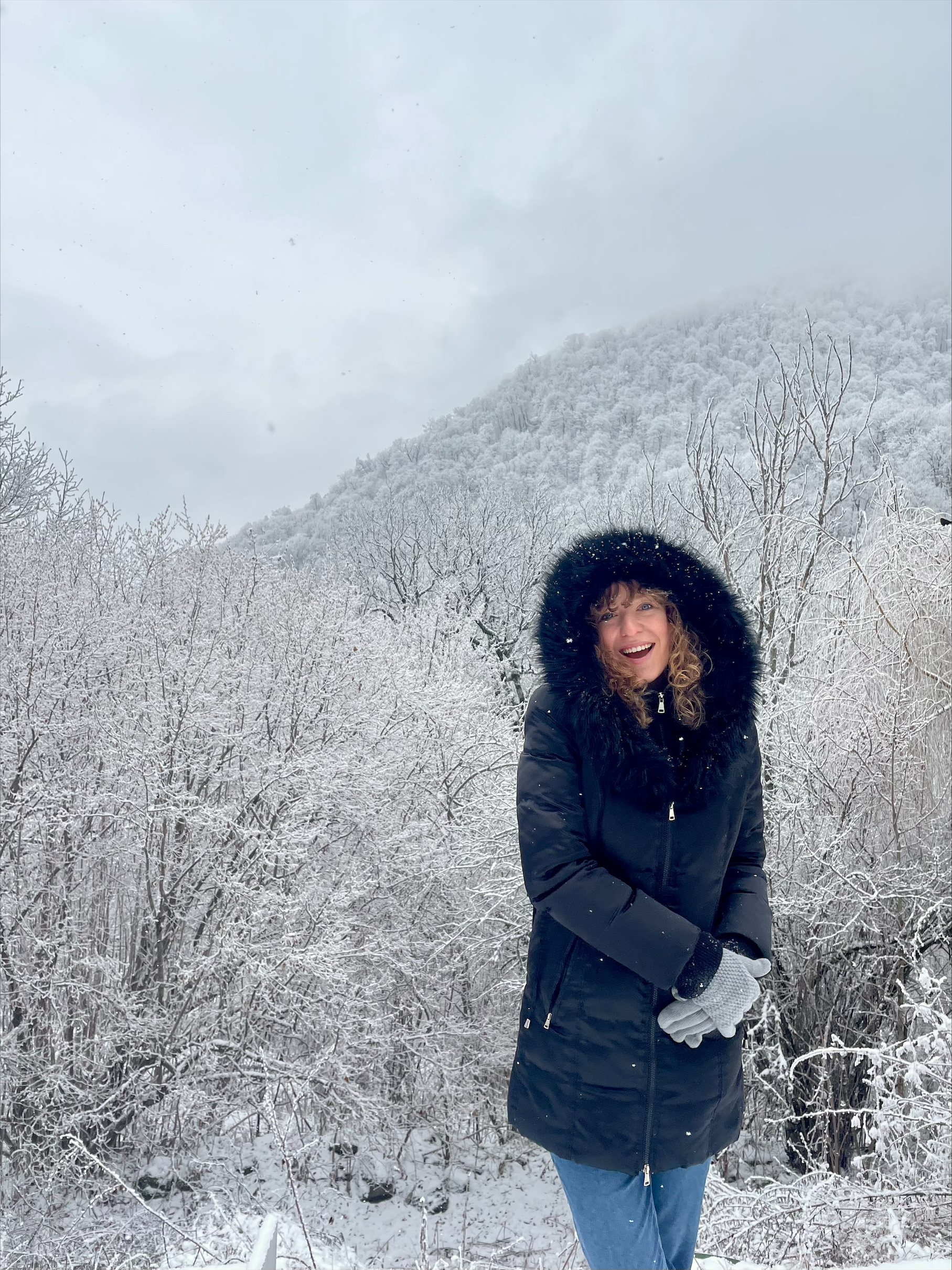- May 31, 2024
- Amanda Soh
Tatiana Vassiliev 2024 MISTI Excellence Award Winner
Rising junior Tatiana Vassiliev '26, a double major in electrical engineering and computer science major and finance, landed a 2024 summer internship with SpaceX. She credits this opportunity to her MISTI Global Teaching Lab (GTL) experiences. Through GTL, she taught robotics to 50 high school students in Germany and Armenia. In total, she was able to teach 50 students about robotics. In addition, this experience helped her hone her skill sets and understand the subject matter much more. During the summer of 2023, Tatiana was an IdentityX Ambassador while she interned in Israel.
MISTI: What are some common misconceptions about MISTI GTL experiences and what you’ve gained from those experiences?
Tatiana: I think a lot of people kind of see it [Global Teaching Labs program] as unattainable. Or maybe something saved for later years in college. Obviously for me that wasn't the case. The way I approached it was to be very strategic about looking at what countries to take as a freshman, looking at where my skillsets align the most, and it's not just for upper classmen. Also, a misconception that it's a waste of time which was not the case for me. Both of my GTL programs were such a value add—teaching robotics—and a stimulating experience. It also really helped me hone my skill sets and show that I know the content that I'm working with.
These experiences also added to my story especially when I was applying to my 2024 internships. I'll be working at SpaceX as a Starlink Controls Intern.
MISTI: How did your teaching and internship experiences in different countries help you understand the global landscape of your field of study or work?
Tatiana: It was a very, very eye opening experience to learn about TUMO Center for Creative Technologies in Yerevan, Armenia. It's an incredible system in Armenia and their whole system of teaching STEM is incredibly developed and supported. They would have guest speakers like Kanye West, animators from Nickelodeon, and more!
It left me with questions and the urge to brainstorm creative ideas. 'What is the future of STEM education look like in the U.S.? How can I adopt some of the practices used in TUMO in the future, bringing them back to the cities I live and work in?'
In Germany, we used the platform called Duckiebot which was developed at MIT. It was really cool to me because it helped me see the work being done at MIT—these cool projects done at the Media Lab and by professors across departments—is applicable. These experiences really broaden my perspective; helping me understand the global attitude on technology and what's going on in the field.
MISTI: Why do you think it’s important for MIT students to do MISTI for the advancement of their own careers? Can you share how it has helped you, especially with your next internship at SpaceX?
Tatiana: Going abroad is one of the most culturally and mentally stimulating experiences that someone can have. Not only was it stimulating in the sense of sharing and teaching my knowledge, but also understanding what community means in different cultures.
Having the privilege to come to MIT, it is really important to also give back. I think at the end of the day, knowledge doesn't mean much if you're not able to pass it on and empower future generations. That's exactly what I was able to do through MISTI GTL, both in Germany and Armenia. It’s definitely been very rewarding. I think the experience is rewarding for MIT students and for all the minds they'll touch.
During an interview with SpaceX, they asked me about a time that I was able to take on a project on your own or able to learn something. With my Armenia GTL, I was given full autonomy with a given budget and was able to get materials I needed to create my own curriculum. It was cool that I could design robotics workshops.
For the internship in Israel during the summer of 2022, it was beyond helpful for my career because I fully learned how to do a lot of data analysis that I had never done before. With how the placement system works for the Israel program, I was able to specify what my skills were in addition to what skills I wanted to learn. I was put into a new industry through this internship even though my data science skills were relatively weak and had no prior knowledge about nuclear physics. Through this experiences, I was able to understand what it meant to use route CERN, analyze data, and learn C++, do large file analysis, how to get the physical system to align with the analysis, and to actually produce good data.
I think there's so many opportunities to learn, both for you and for the students that you're able to mentor. This would really benefit your career development because you will continue to progress in the environment you're placed in. You get to show that you have concrete skill sets—you know enough to understand and teach—and that you've learned from your experiences.
MISTI: What advice would you give students considering doing a MISTI?
Tatiana: Just go. Always be a yes person, unless there's a really, really good reason to say no. Most of the time there's not a really good reason to say no. Go try your best. Find a program that aligns with your current year in college, your skill set to make sure that you actually get accepted. But, really just taking on whatever opportunities you have. When else would you get to travel to all this interesting places and engage culturally?
